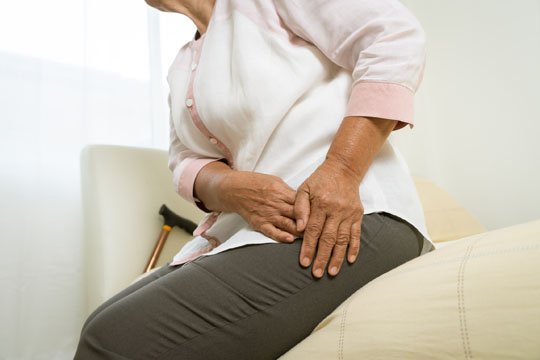Hip Pain Treatment in Rohini
Home / Hip Pain

Hip Pain
Hip pain is a common condition that can arise from various causes, affecting the hip joint and surrounding structures. Understanding the potential factors contributing to hip pain, its symptoms, and management approaches is crucial for addressing discomfort and promoting hip health.
Causes of Hip Pain
- Osteoarthritis: Degeneration of the hip joint cartilage, leading to pain, stiffness, and reduced range of motion.
- Hip Bursitis: Inflammation of the bursa (fluid-filled sacs) around the hip joint, often due to overuse or injury.
- Tendinitis: Inflammation of tendons around the hip, commonly affecting the iliotibial (IT) band or the tendons of the hip flexors.
- Hip Labral Tear: Damage to the ring of cartilage (labrum) in the hip joint, often associated with sports or repetitive movements.
- Muscle Strains: Overstretching or tearing of muscles around the hip, often due to sudden movements or excessive exercise.
- Hip Fracture: A break in the bones of the hip, usually more common in older individuals due to osteoporosis.
- Sciatica: Compression or irritation of the sciatic nerve, which can cause pain that radiates to the hip and leg.
- Infection: Infections in the hip joint, though rare, can cause severe pain and require prompt medical attention.
Symptoms of Hip Pain
- Pain: Dull, aching, or sharp pain in the hip joint or surrounding areas.
- Stiffness: Reduced range of motion and stiffness, making it challenging to move the hip.
- Swelling: Inflammation and swelling around the hip joint.
- Weakness: Reduced strength in the hip muscles, affecting stability and mobility.
- Clicking or Popping: Audible sounds during hip movement, which may indicate joint issues.
- Radiating Pain: Pain that extends to the groin, thigh, or buttocks, especially with certain movements.
Management and Treatment
- Rest and Activity Modification: Giving the hip time to rest and avoiding activities that worsen pain is crucial.
- Pain Medications: Over-the-counter pain relievers like acetaminophen or NSAIDs may help alleviate pain and inflammation.
- Weight Management: Maintaining a healthy weight to reduce stress on the hip joints.
- Physical Therapy: Specific exercises to strengthen hip muscles, improve flexibility, and enhance joint stability.
- Heat and Cold Therapy: Applying heat or cold packs can help reduce pain and inflammation.
- Assistive Devices: Using crutches or a cane to reduce weight-bearing on the affected hip.
- Injections: Corticosteroid injections into the hip joint or bursa to reduce inflammation and provide pain relief.
- Regenerative medicine – PRP Therapy (Platelet-Rich Plasma ) : Platelet-Rich Plasma (PRP) therapy is a form of regenerative medicine that utilizes the patient’s own blood to promote healing and tissue regeneration. The blood is drawn from the patient and processed to concentrate the platelets, which contain growth factors and other bioactive proteins essential for tissue repair.
- RFA (Radiofrequency ablation) : RFA is a medical procedure that uses electrical currents produced by radio waves to generate heat and target specific tissues. This technique is commonly employed to treat various medical conditions, especially those involving chronic pain or abnormal tissue growth.


